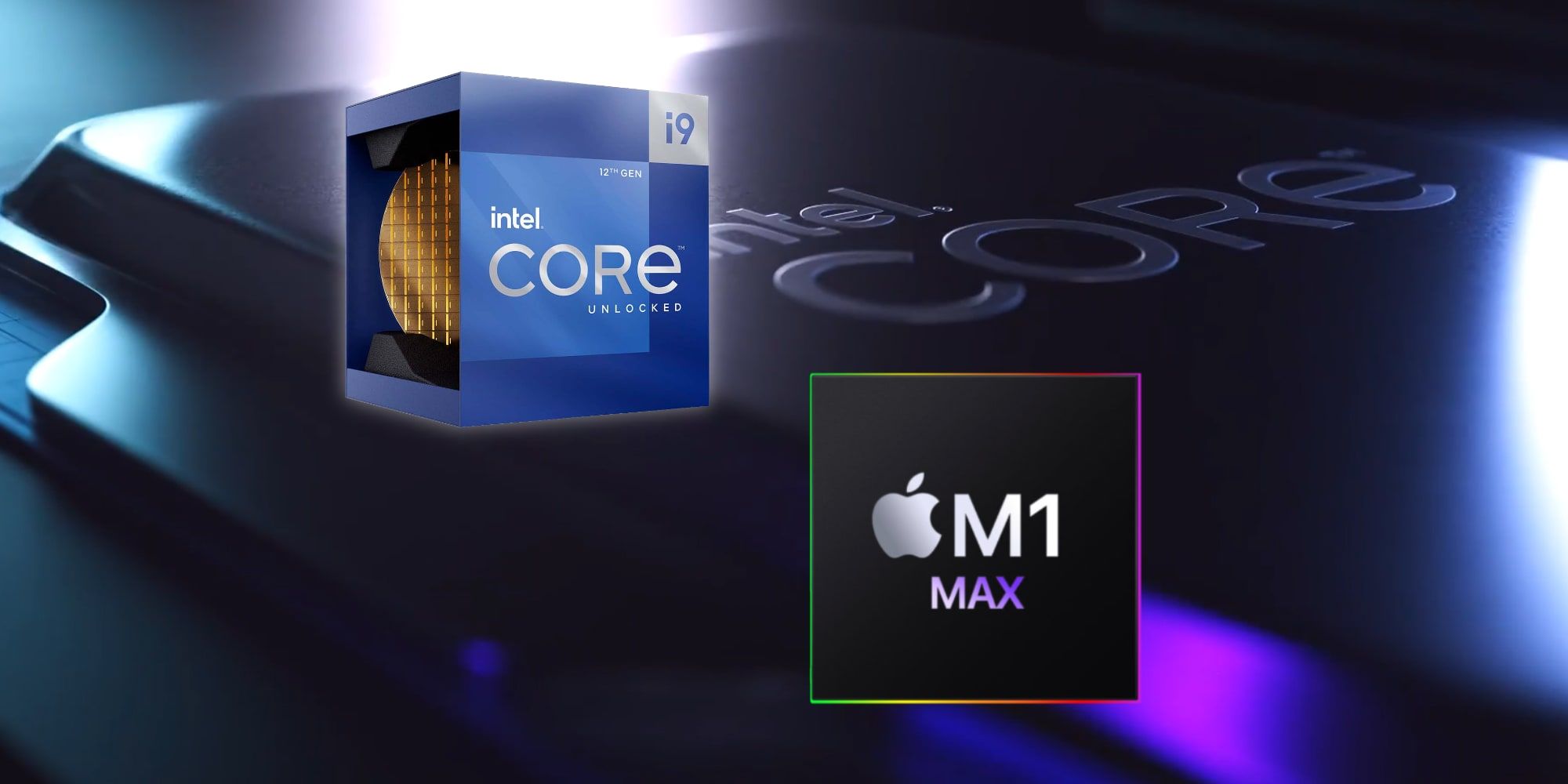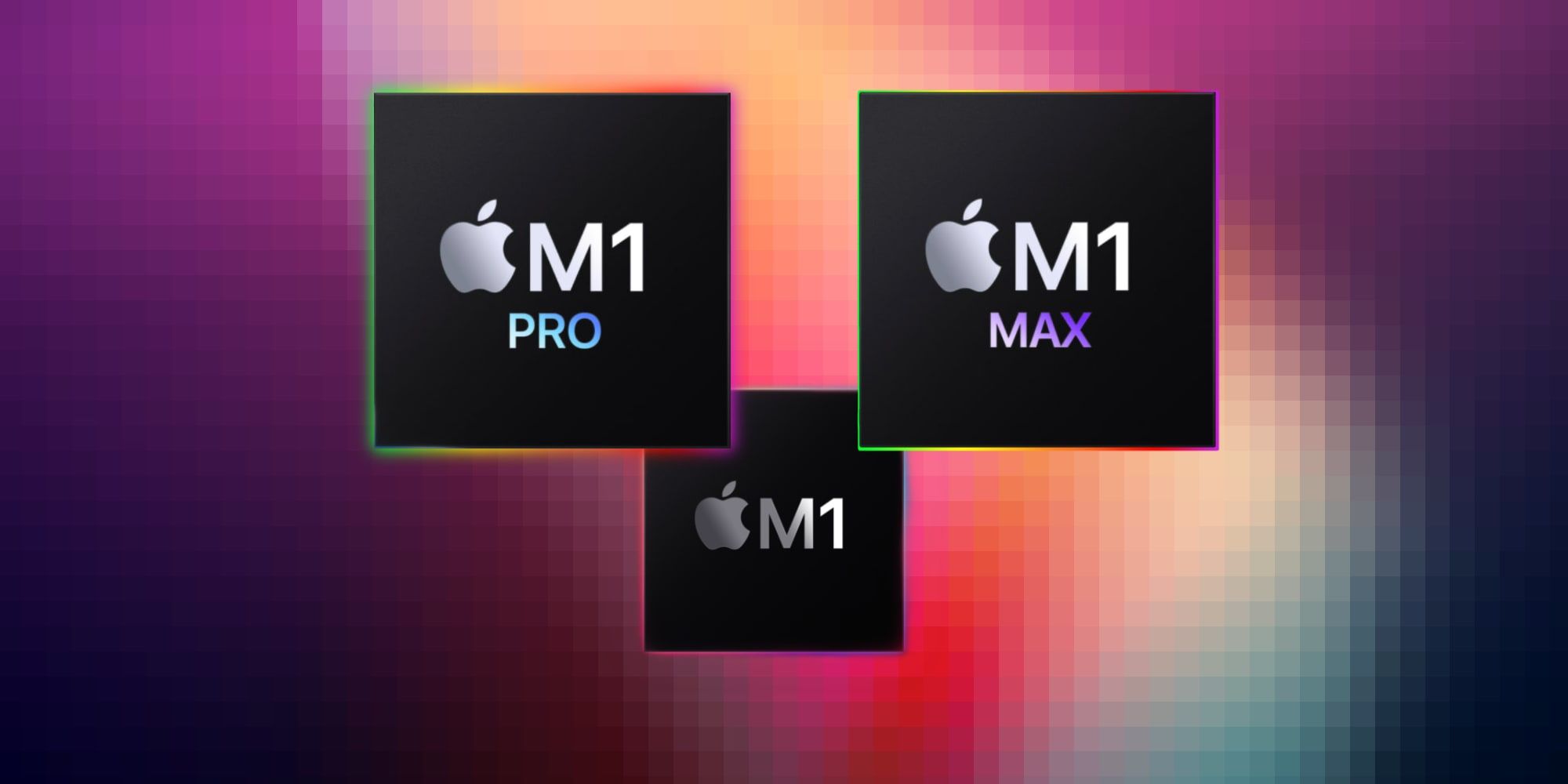Apple's M1 Max chip is super fast, but Intel's new Alder Lake Core i9-12900K chip is even faster, according to recent benchmarks. As long as the computer has enough performance, that might not make a difference to the user. For Apple's future plans, however, Intel's challenge could have an impact.
The 2021 MacBook Pro built upon the impressive speed and efficiency of last year's model. Apple's new M1 Pro and M1 Max chips surpassed the original M1 CPU with more performance cores and quadrupled the number of graphics cores in the highest configuration model. The latest MacBook Pro also offers greater maximum memory and storage capacities. Screen specs are much better as well, with mini-LEDs bringing a one-million-to-one contrast ratio and up to 1,600 nits of brightness. These are much more professional laptops, leading the pack even among the best from the PC world.
The nature of technology is to continually get faster and better and Intel hasn't been resting while Apple rolled out its latest innovations. The leading PC chip manufacturer recently announced its top-of-the-line Intel Core processor, the Alder Lake i9-12900K chip. Featuring eight performance, eight efficiency cores, and capable of 24 threads, Intel's new chip blasts through benchmarks like a rocket. Apple's best, the M1 Max chip, ran about even in a single-core Geekbench comparison, scoring 1,781 to Intel's 1,834 but fell behind in multi-core. An M1 Max MacBook Pro scored 12,728, only 73-percent as fast as a pre-release Intel Core i9-12900K that achieved a very high 17,370 on the Geekbench multi-core test.
Why Intel's Chip Win Matters
It's fair to point out that the M1 Max was used within a laptop computer, while the Intel Core i9-12900K is most likely housed in a desktop tower. Intel says the processor's base power is 125 watts and can draw as much as 241 watts, far more than the MacBook Pro. That means Apple can easily point to laptop versus desktop and have the glory of matching it on single-core and coming somewhat close in multi-core. With this framing, it's still a win for Apple.
However, Apple will most likely repeat 2021's chip rollout in 2022. Just as the 2020 M1 chip appeared inside an iMac in 2021, it's fairly safe to assume an iMac powered by an M1 Pro or M1 Max will appear next year. There was no new Mac mini in 2021, so that will likely get the new chips as well. Then it becomes a desktop vs desktop performance comparison and Apple can't claim dominance against an Intel Core i9-12900K unless it adds more cores or bumps the clock frequency of its M1 Max processor. Apple's M1 Max is slower than Intel's new chip and that might make marketing a little harder for Apple's next desktop Mac.


